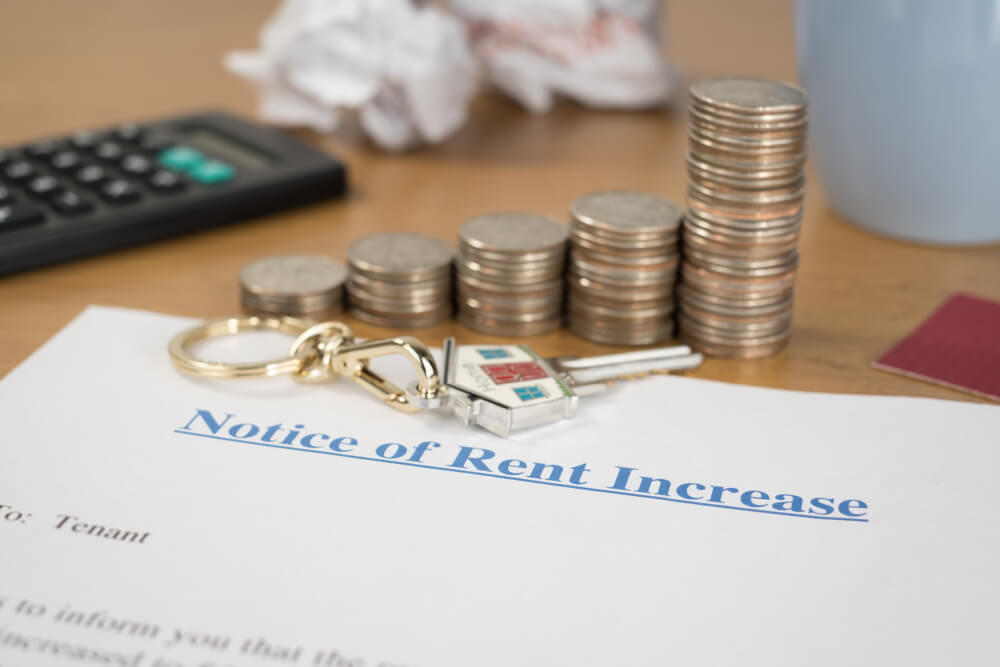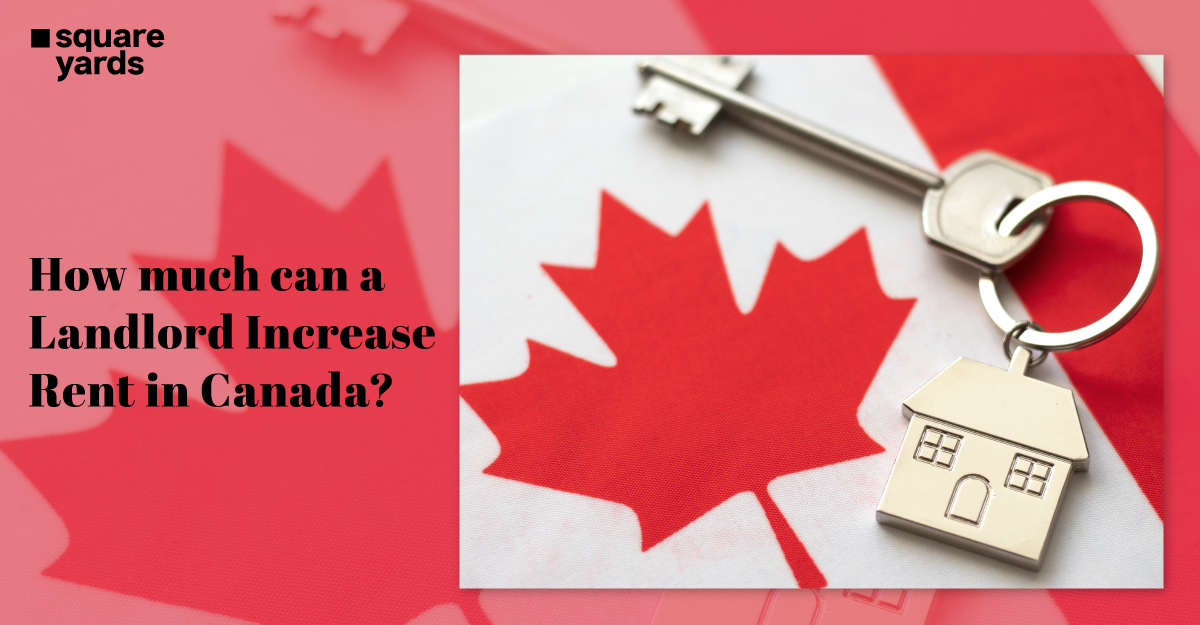You have been living in your dream house for more than four months, and your landlord is increasing the rental increase notice? Well, then, the information on rent increase in this blog can help you out.
The basics of increase start with how much a landlord can increase rent. It also includes how often they can increase rent in a specific calendar year. Knowing when, how, and how much the landlord can increase the rent is essential. All these pieces of information help in collecting data and negotiating with them to crack a good deal.
This blog will tell you the basic components of an increase in rent amount, fixed-tern tenancy notice period and much more in detail.
Can The Landlord Increase Rent in Between The Agreement?
If the time period for a rent increase is mentioned in the contract, then the landlord can only propose the changes accordingly. They can not increase the rent whenever they wish. Therefore, it is important to have a rental agreement that mentions everything, including the rent increase period, the time one is renting it, the property’s address and other details.
The landlord also needs to ensure that the rent increase is in accordance with the set limit, and if it is beyond that, they have the authorities’ permission. The landlord can only increase the rental amount between the agreement once they have permission.
How Much Can a Landlord Increase Rent?

There is a specific amount that the landlord can increase the rent for. If they have to go beyond the limit, they are required to take the permission of the Landlord and Tenant Board (LTB) Canada. The specific amount until the landlord can increase the rent is 1.2% in 2022. If the landlord wants to increase more than this limit, they need to submit an application to the LTB for permission. The new percentage will only be applicable after LTB grants permission. Therefore, if the landlord says the increased rent is more than 1.2%, ask them for permission. If they fail to show permission, you are not required to pay the new limit. Also, if you do not agree with the new rent, ask them for the rental increase notice period to find a new place in your budget and shift.
How Must The Landlord Propose a Rent Increase?
The landlord can not suddenly come to the tenant and iterate the rent increase to their tenants. Instead, they have to follow some way to prose the rent increase. The increment in rent amount can be proposed in the following mentioned ways:
-
- Renew the tenancy contract for the next period with an increment in the rental amount.
- Agree to that specific rent agreement by both the parties, i.e., landlord and tenant, and sign the papers after mutual agreement.
- Another way that the landlord can use is the ‘Landlord’s Notice Proposing a New Rent’ in which the amount will be increased after the set fixed-term is over.
Can I Negotiate The Rent?

It is always a great idea to negotiate on rent. Try to find out why the landlord wishes to increase the rent. Also, understand how much a landlord can increase rent to negotiate in a planned way. Ask the landlord if it is due to the increase in municipal charges and tax or the introduction of new external services by the authority for security purposes. Knowing the reason will help in negotiating in a better way.
If finding out the reason does not work, ask for some home improvement services for a rent increase for the property. These benefits include paying rent on time, keeping the house clean, and others. In many situations, the tenant will be surprised that the landlord will agree to their home improvements demands and not apply rent increase. The landlord will prefer to keep a good existing tenant than start the exhausting process of finding a new one.
Ask For a Longer Fixed-Term Tenancy Contract
It is a good idea to ask for a longer fixed-term tenancy agreement. If one does not have this contract, the landlord can increase rent whenever they want. However, if one has this contract and has rented the place depending on it, the landlord can only increase the rent once in 12 months. The rent increase can only be made once the fixed-term tenancy notice period contract ends or in between if there is any rent review clause in the agreement.
A longer fixed-term tenancy notice period contract is beneficial for the tenants as the landlord will no longer pester them by increasing the rent irrationally. Ask for a longer fixed-term tenancy notice period of 12 to 18 months from the landlord. Ensure that the contract mentions that the rent can be increased only once during that period.
How Much Notice Period is Tenant Entitled to?
The landlord is responsible for giving the rental increase notice period to the tenant. The time period to which the tenants are entitled is of 90 days. In these 90 days, the tenant can either move from the property to another space or pay the increased rental amount. The final decisions need to be made these days. Afterwards, an increased notice can be given to the tenant only if the landlord agrees.
-
- The rental increase notice period is offered in different ways like if one pays the amount on a monthly or weekly basis, they are entitled to a month or two’s period.
- If they live on a yearly contract basis, the notice period must be 90 days and can be increased up to 6 months.
Can Rent Go Above The Guidelines?
If the landlord wishes to go beyond the set guideline percentage while increasing the rent, they must submit an application. The application needs to be submitted to the Landlord and Tenant Board (LTB) Canada. Only after the LTB approves the application can the rent increase go beyond 1.2%.
The LTB will accept the application only if:
-
- The municipality taxes and charges have been increased significantly in the area where the property is constructed.
- Major renovations or repairs are being done in the area.
- External security services costs have increased or are being introduced in the area for the first time.
Other Tenant Tips
Apart from knowing about the rent increase, there are also a few things to keep in mind before renting a place in Canada. Some of these tips for the tenants are as follows:
-
- Review the lease before signing the paper.
- It is a good idea to bring your paperwork.
- Get everything promised by the landlord in writing form.
- Make sure that the clauses in the agreement protect the tenant’s privacy rights.
- Demand the required home improvements before signing and moving in.
Wrapping Up
The rent increase is a common thing that most tenants are worried about. However, when the landlord says they will increase it, try to explain your case. Read and understand all the rights of tenants and landlords before claiming anything regarding the rental price increase. The landlord will likely understand and would like to find a way together.
You May Also Read :
| Pros & Cons of Vacation Home Rental | Vacation Home Rental |
| Is it Possible Selling a House With Tenants | Selling a House With Tenants |
| All About Landlord Tenant Act Ontario | Landlord Tenant Act Ontario |
| Canadian Landlord Tenant Rights | Landlord Tenant Rights |
| Guide For Landlord Renting Homes | Renting Homes |
Frequently Asked Question (FAQs)
What is the fair percentage for a rent increase in Canada?
The minimum fair percentage for a rent increase in Canada is 1.2%. The rent can be increased beyond this percentage but only be applicable after the board of Landlord and Tenant accepts it.
Does the fixed-term tenancy beneficial in negotiating rent?
The fixed-term tenancy with a rental increment cause is beneficial. It is because the landlord will only be liable to increase the rent once in the tenancy period.
Can the landlord increase rent more than once in a calendar year?
The landlord in Canada can only increase the rent once a year after both parties (landlord and tenant) agree on the rental agreement.
What is the rental notice increase period given to tenants in Ontario?
A minimum period of 90 days is given to the tenant as a part of the rental increase notice. The notice period can be extended when both landlord and tenant agree for up to six months.
How much can a landlord increase rent in Canadian cities?
The minimum rent increase percentage in Canadian cities as of 2022 is 1.2%. If the tenant decides to go beyond this, then they are required to take the permission of the Landlord and Tenant Board (LTB) Canada.



































